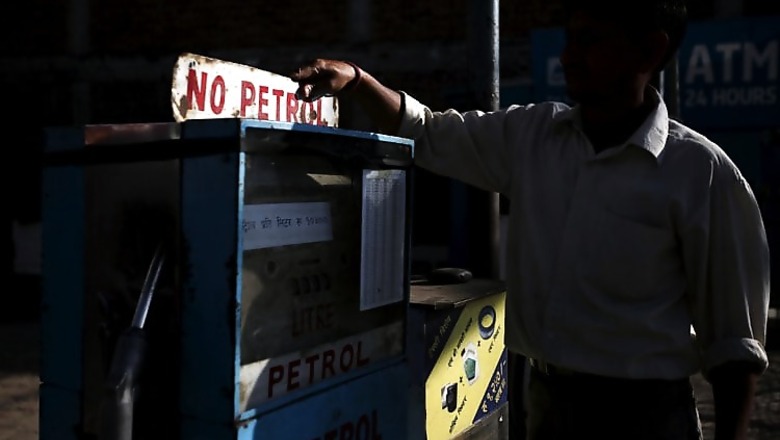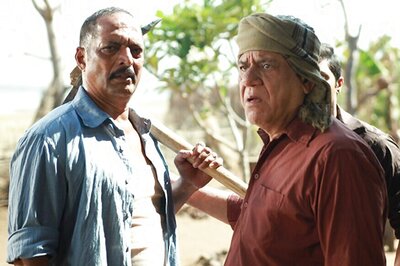
views
Kathmandu: China will supply Nepal with 1.3 million litres of fuel to ease crippling shortages after protests over a new constitution blocked imports from India, a Nepali official said on Sunday.
Scores of trucks have been stranded at a key India-Nepal border checkpoint for around a month, cutting off vital supplies and forcing fuel rationing across the landlocked Himalayan nation.
The shortages led to overnight queues at gas stations in Kathmandu and prompted the state-run oil company to ask foreign firms to airlift supplies into the country as it struggles to recover from devastating earthquakes.
India has had a monopoly on Nepal's fuel supplies for decades but tensions over the blockade have prompted Kathmandu to turn to New Delhi's rival China.
"China has agreed to send us 1,000 metric tonnes, or 1.3 million litres of petrol, as a grant," said Sushil Bhattarai, acting deputy managing director at the state-run Nepal Oil Corporation (NOC).
The fuel will be transported via a land crossing which was repaired and reopened this month after suffering damage in the earthquake that hit Nepal in April. It is unclear whether China has donated fuel to Nepal in the past, but officials say the two countries have never commercially traded oil or gas.
Nepal has accused India of being behind the ongoing blockade at the bridge checkpoint in Birgunj, 90 kilometres south of the capital, in protest at Kathmandu's handling of a new charter.
The trade hub has been blocked for weeks by protesters from the Madhesi ethnic minority based in Nepal's southern plains, who have close cultural, linguistic and family ties to Indians living across the border.
New Delhi has denied Kathmandu's claims and has urged dialogue with protesters to end the stand-off which started on September 24.
Nepal's Madhesis have long complained of discrimination and say a new federal structure laid out in the country's new constitution adopted last month will leave them under-represented in parliament.
The constitution, the first drawn up by elected representatives, was meant to cement peace and bolster Nepal's transformation to a democratic republic after decades of political instability and a 10-year Maoist insurgency. But it has instead sparked deadly violence, with more than 40 people killed in clashes between police and ethnic minority protesters.
Work on the new constitution began in 2008 after Maoist rebels laid down arms and entered politics, winning parliamentary elections and abolishing a 240-year-old monarchy. But power-sharing squabbles between parties stymied progress.
Lawmakers finally reached agreement in June, spurred by the massive earthquake two months earlier that killed nearly 8,900 people and left more than half a million people homeless.


















Comments
0 comment